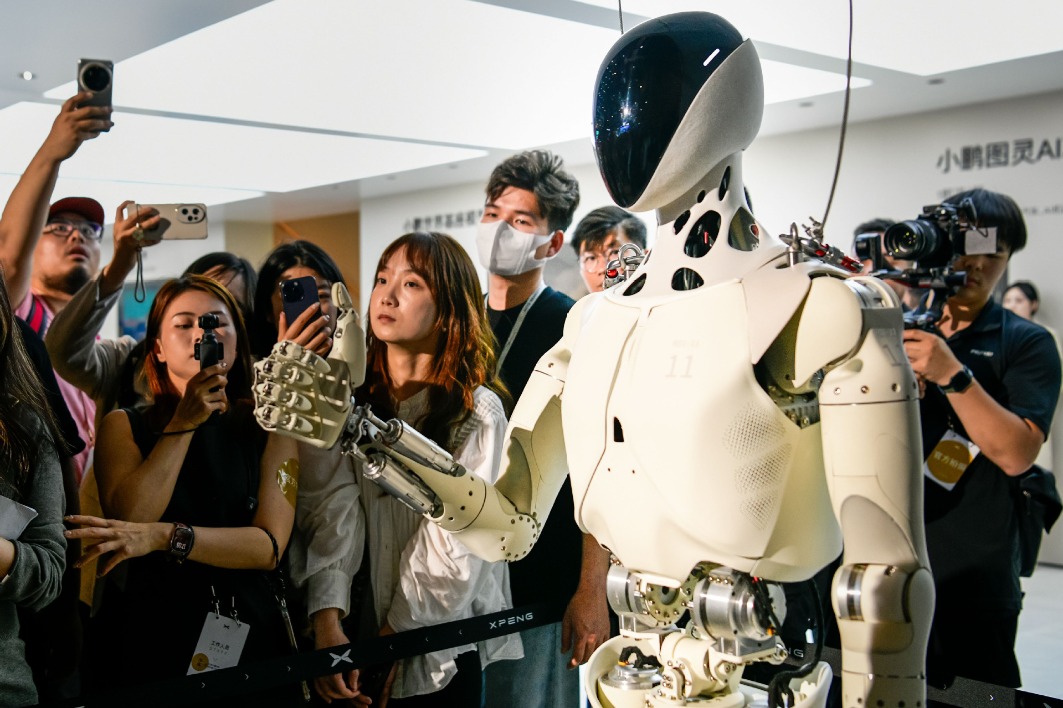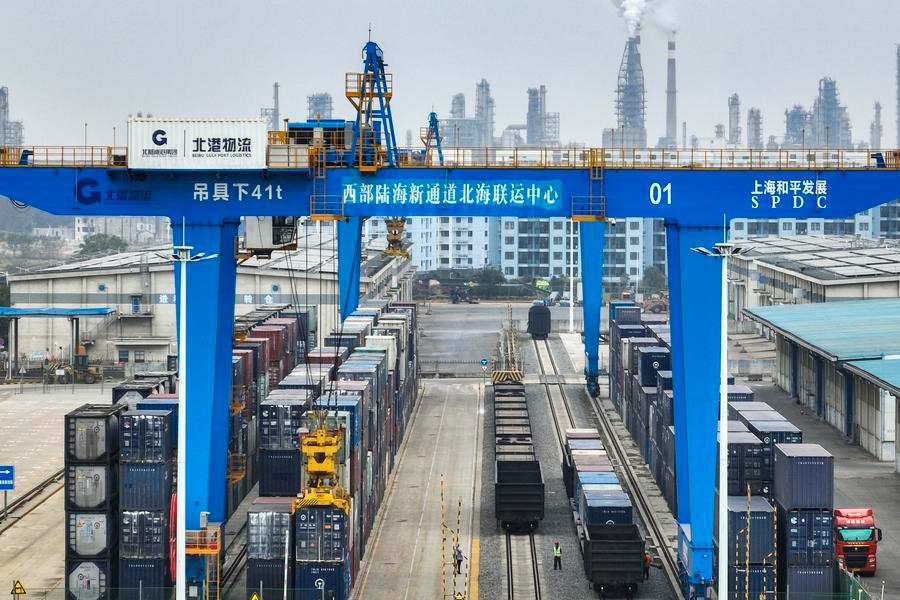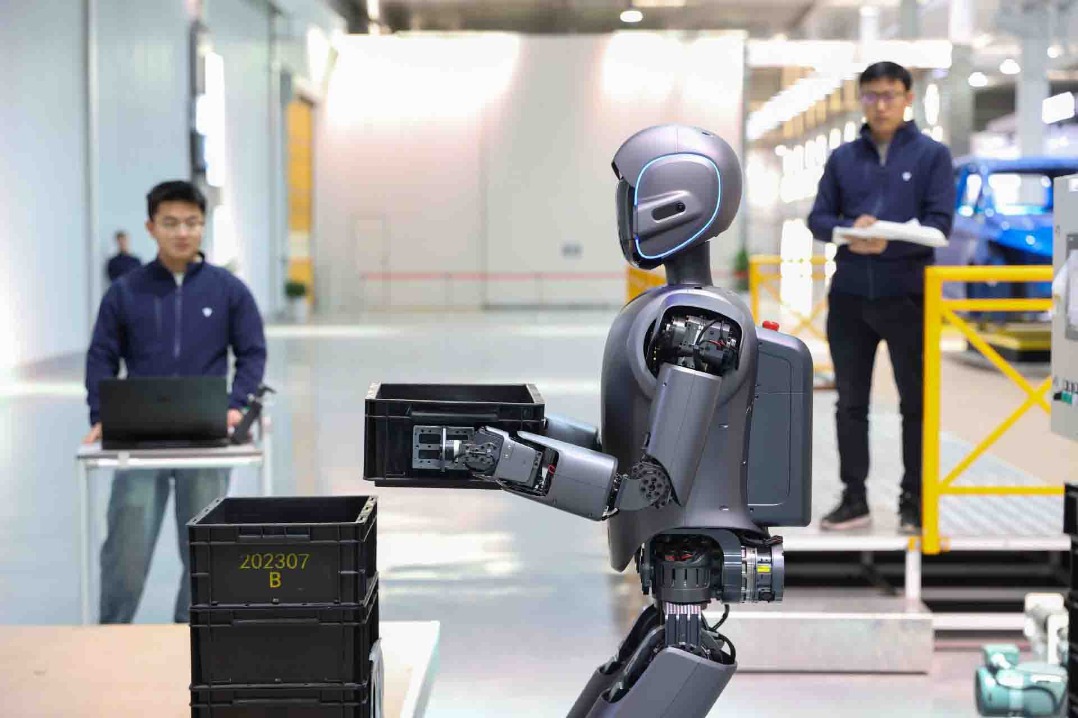Stricter controls imposed on marketing of smart driving cars
Ministry cracks down on exaggerated claims about vehicles' capabilities

"They are nothing but lies," said Wang Yun, a 35-year-old teacher at a middle school in Tianjin, about many carmakers' marketing campaigns to promote smart driving vehicles.
Once an avid fan of the electric Xiaomi SU7, Wang's enthusiasm for such vehicles waned after a fatal crash in East China's Anhui province in March involving the model.
Three young people were in the vehicle, cruising on a highway late at night at 116 kilometers per hour with its smart driving system Xiaomi Pilot on, when the car suddenly prompted the driver to "take over" after it detected an obstacle.
Data from Xiaomi shows the driver immediately took control of the vehicle. However, it ended up crashing into a concrete barrier at 97 km/h and bursting into flames, killing all three occupants of the car.
The popularity among young people of Xiaomi and its founder Lei Jun sparked widespread discussion about the safety of the vehicle's smart driving system and its technology.
The tragedy also prompted Wang to question whether the technology was perfect, as many automakers claimed. "How can any human driver solve such a problem in three seconds?" he asked.
Wang later discovered that carmakers make it clear in user manuals that a smart driving system cannot cope with every situation. They are legally required to make such disclosures, however, they don't mention these clarifications at product launches.
On social media, there are multiple video clips in which executives confidently and enthusiastically boast that their cars are smart enough to outperform experienced drivers. They usually show footage of a smart driving system avoiding all accidents.
One of the executives who often takes to social media is Yu Chengdong, head of Huawei's smart car solutions. He wrote on the Weibo platform that his Luxeed "drove itself all the way" when he returned from his home city of Huoqiu, Anhui, to Shenzhen, Guangdong province, during the Spring Festival holiday earlier this year.
Luxeed is one of the marques codeveloped by carmakers and Huawei that uses the technology giant's smart driving system. The vehicles are marketed under the banner of the Huawei Intelligent Mobility Alliance.
Lu Fang, CEO of automaker Dongfeng's premium marque Voyah, has warned about exaggerating the capabilities of smart driving. "The problem isn't with the technology itself — it's with how it's being marketed," he said.
Lu said carmakers should accurately inform potential buyers about the capabilities of a specific model.
"Safety is the baseline. They must know what their vehicles can do," he said, adding buyers shouldn't be confused by "vague ideas".
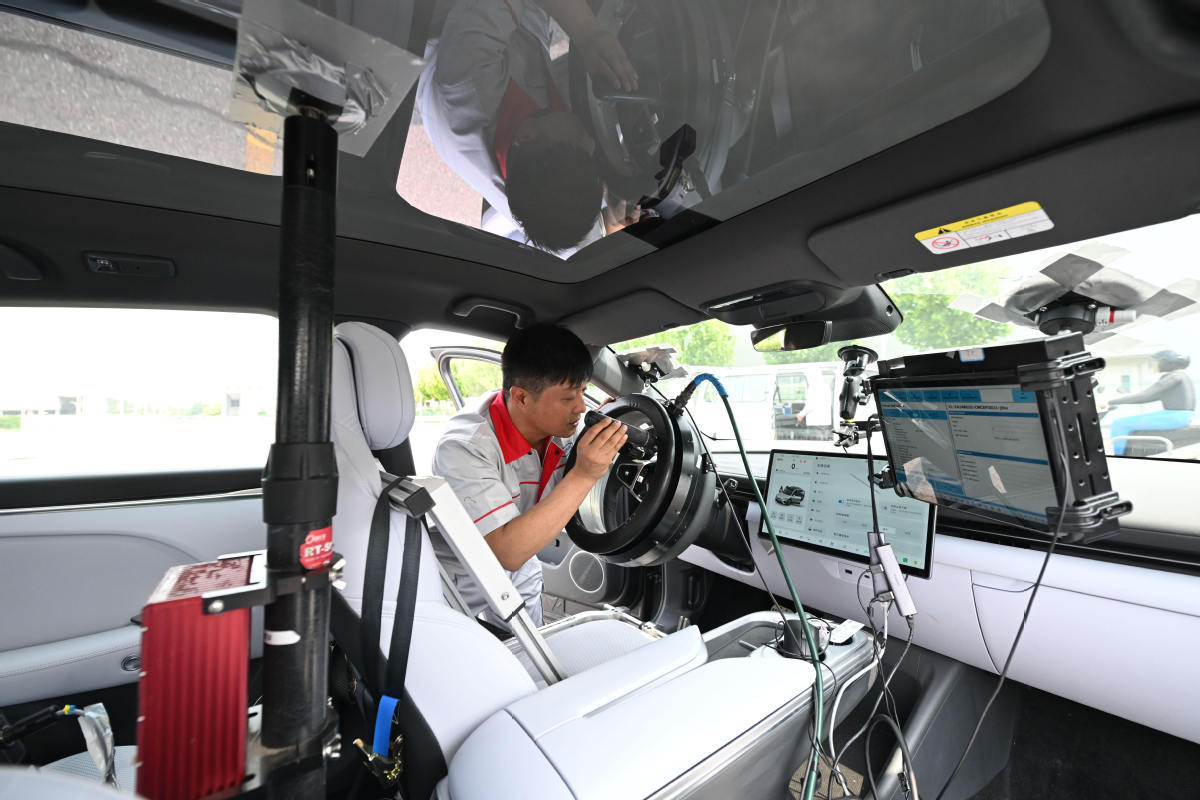
Clarity of operations
Phrases such as "smart driving" or "high-level smart driving" are more marketing language than technical terms.
Vehicle automation is divided into six levels, Level 0 to 5, based on how much control the vehicle takes versus the human driver, according to the Society of Automotive Engineers.
Functions now available in passenger vehicles in China are Level 2, which means the car can control both steering and speed simultaneously under certain conditions, but the driver must stay alert and keep their hands on the wheel.
Many carmakers, however, refer to such functions, which are nothing but driving-assist ones, as "high-level smart driving" in their marketing campaigns, which makes a vehicle sound more advanced than it is.
Another common marketing ploy is to say the vehicle's functions are Level 2.9 or 2.999, a meaningless number used to convey the idea a particular car is better than its rivals, and close to achieving Level 3.
According to the Society of Automotive Engineers, a Level 3 vehicle can drive itself in specific scenarios, such as a traffic jam, and the driver can take their hands off the wheel and eyes off the road — but must be ready to take over when requested.
No Chinese carmaker has commercially launched a Level 3 vehicle, although some claim that they will soon.
A large number of car buyers are attracted by the hype of smart driving, believing that their vehicles are capable of autonomous driving, which is classified as Level 4 or 5.
"This is how internet companies-turned carmakers promote things. That's incredibly irresponsible," Lu said. "Just because someone is loud doesn't mean they're right."
Overstating features is one of the strategies frequently used by NEV startups to impress potential buyers.
In February, Wei Jianjun, chairman of China's largest SUV maker, Great Wall Motors, warned that "smart driving is not a show".
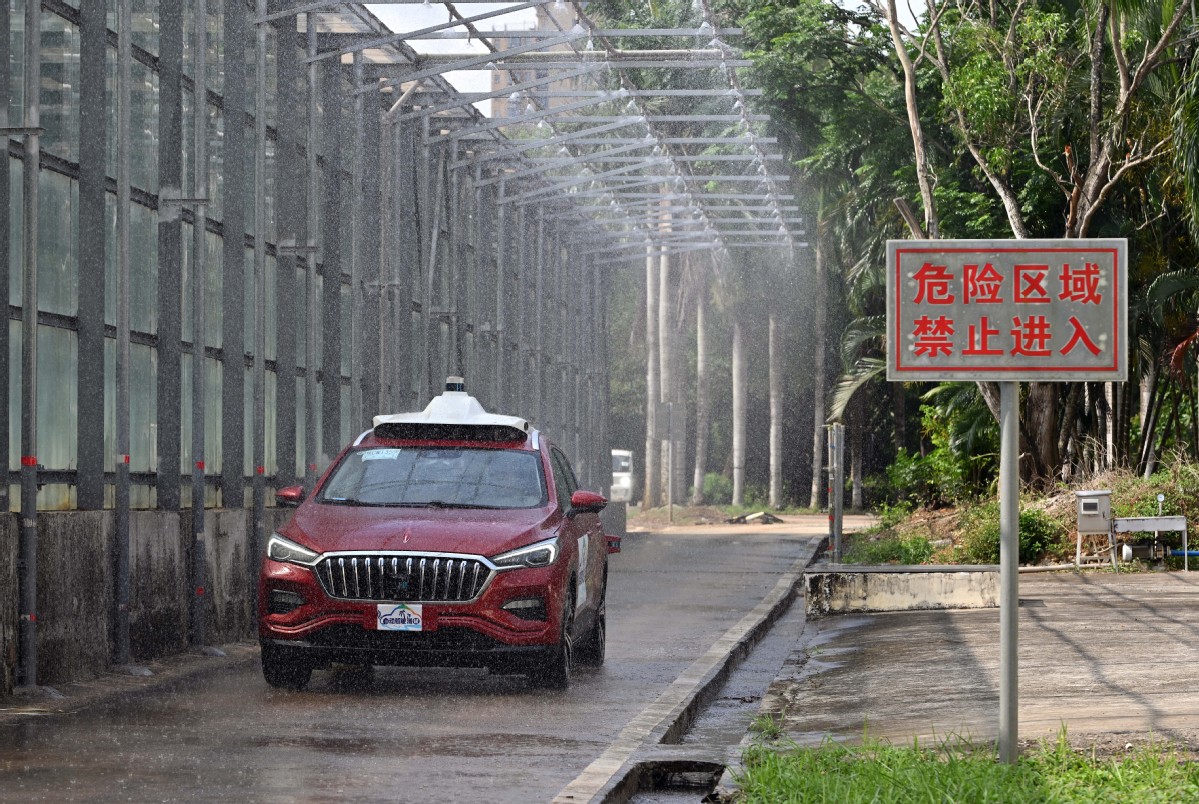
Toning down claims
In a move that appeared an attempt to tone down the hype, the Huawei alliance issued a notice on April 15 calling for the use of smart driving in a "standardized way".
Nevertheless, the alliance claimed that its system had helped 700,000 vehicles prevent 1.7 million possible accidents.
"Safety is the best luxury," said Yu, head of Huawei's smart car solutions, when he unveiled the alliance's new models in Shanghai the day after the notice was issued.
On April 18, Horizon Robotics, a Chinese smart driving solution provider, also unveiled its latest products in Shanghai.
However, it abandoned descriptions such as "smart driving" and "high-level smarting", and said simply the vehicle had "Level 2 driving-assist solutions".
The change in terminology followed a meeting convened by the Ministry of Industry and Information Technology earlier that week. The ministry said in a news release on April 16 that it had instructed automakers to avoid exaggerated or misleading marketing. Carmakers were also told to thoroughly test the driving-assist systems and clearly define their true capabilities.
Companies must also fulfill their duty to fully inform users, ensure production consistency, and take full responsibility for product quality and safety, said the ministry.
A picture of the meeting's minutes, which has been widely circulated on social media, shows much stricter ministry controls.
Among other things, it said carmakers should not use terms such as "autonomous", "smart driving" or "high-level smart driving", "eyes-free", and "hands-free" when they describe their driving-assist functions.
Even "take over" is not allowed, because the term is technically applicable to Level 3, and not Level 2 functions. Instead, the simple term "driving-assist" is recommended.
Also, carmakers were told not to organize large-scale public tests for publicity purposes.
Yu Kai, founder and CEO of Horizon Robotics, said the ministry had done a "great" job. "It is a great, virtuous curb, without which the sector cannot have a healthy and orderly development," he said.
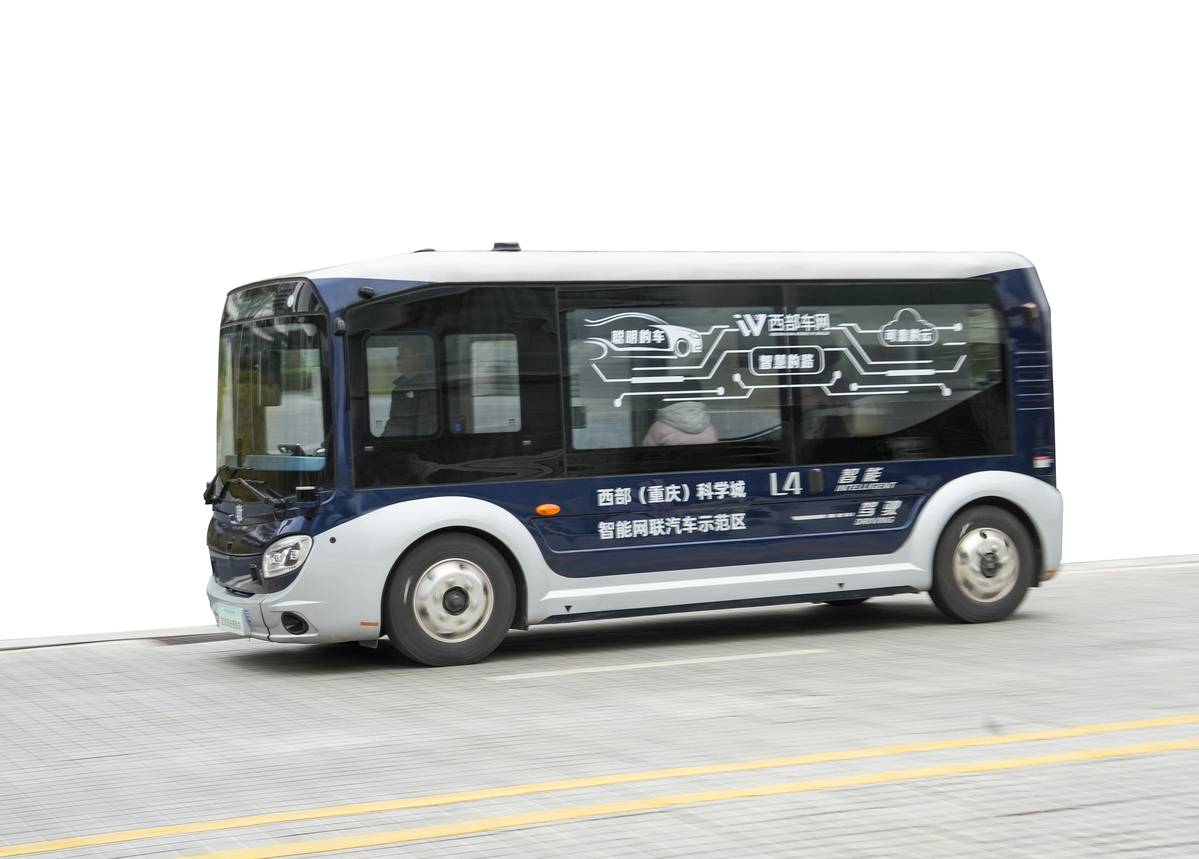
Realistic expectations
Cui Dongshu, secretary-general of the China Passenger Car Association, called for a combined approach to ensure safety as smart driving features become available to more car buyers.
"It is critical to address the gap between consumer perception, and the actual capabilities of the driving-assist systems," said Cui.
He also suggested that vehicles that claim features such as "hands-free" and "eyes-free" driving should be strictly monitored.
Normally, such vehicles will give a warning if the drivers' hands are off the steering wheel for a certain amount of time.
But drivers can easily circumvent this safety measure by buying a gadget to put on the steering wheel. Others just wedge a bottle of water into the steering wheel.
Cui called for tighter regulation of these cheat gadgets, which are easy to find on platforms like Taobao.
He also advised the media to adopt a more cautious tone in their stories about the technology.
Content creators tend to upload eye-catching or sensational videos and images to attract viewers, which brings income from the platform and advertising opportunities.
Lu, the Voyah CEO, said he gets mad when he sees misleading video clips. "It is infuriating to see a whole family sleeping in a car driving on the highway. You want to report it (to the platform)," he said.
Serious traditional media outlets are often caught in the dilemma of whether to adopt a similar sensationalist style. Some analysts believe that social media platforms such as Douyin should ban such videos as they are dangerous.
Meanwhile, traffic management authorities are starting to issue alerts and warnings for smart driving vehicles.
During the recent Qingming holiday, targeted warning signs appeared on roadsides and highways across Anhui, Jiangsu and Zhejiang provinces as holiday traffic surged.
They read: "Construction barrier ahead, turn off intelligent driver assistance," "Intelligent driving is only an aid, focus is still required for highway driving," and "Driver assistance may involve risks, exercise caution on highways."
Wang, the middle school teacher in Tianjin, acknowledges the role of carmakers and the media, but believes car owners should be responsible for themselves.
"You cannot easily trust those who sell you things to get your money, can you? You are an adult, you cannot rely on others to take care of you. Don't be pampered and do your homework," he said.
A popular choice
Horizon Robotics has forged partnerships with more than 40 automotive brands, including China's top 10 carmakers, and has over 5 million vehicles on the road using its smart solutions.
At the April 18 product launch in Shanghai, Horizon Robotics unveiled new deals with several carmakers including Chery.
A month earlier, Chery announced its plan to make "smart driving "available in various models, with the cheapest one priced around $10,000.
Other major automakers Geely and BYD have unveiled similar strategies.
"We believe that smart driving should not be a luxury, but a standard feature for all consumers," said Wang Chuanfu, chairman and president of BYD, at an event in February.
Wang said 21 percent of traffic accidents in China are attributable to fatigued drivers, which can be prevented by automatic emergency braking or steering.
BYD, with more than 4 million units sold in 2024 is the country's bestselling carmaker, and its latest move is expected to accelerate the adoption of high-level driving-assist functions in the mass market.
Many industry experts are already calling 2025 the first year of mass adoption of driving-assist functions, which have become a key factor for automakers to stay competitive in the market.
Zhang Yongwei, secretary-general of the China EV 100 think tank, said in an interview in January that at least 65 percent of passenger vehicles will feature Level 2 functions this year.
"The integration of intelligent technologies will move beyond premium vehicles to become accessible in mainstream models priced between 100,000 yuan ($13,700) and 200,000 yuan ($27,400)," Zhang said.
A survey conducted by news portal Guancha.cn shows that consumer interest in the technology remains strong, with 83 percent of respondents saying such features would influence their decisions to buy a car.
A McKinsey poll shows that 76 percent of respondents tried "smart driving" in 2024, up from 65 percent in 2023.

















